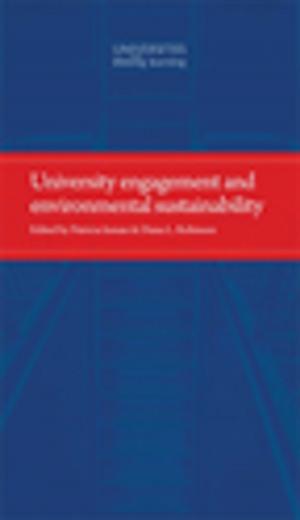Beginning postcolonialism
Second edition
Nonfiction, History, Military, World War I, Fiction & Literature, Literary Theory & Criticism| Author: | John McLeod | ISBN: | 9781847794055 |
| Publisher: | Manchester University Press | Publication: | January 18, 2013 |
| Imprint: | Manchester University Press | Language: | English |
| Author: | John McLeod |
| ISBN: | 9781847794055 |
| Publisher: | Manchester University Press |
| Publication: | January 18, 2013 |
| Imprint: | Manchester University Press |
| Language: | English |
Postcolonialism has become one of the most exciting, popular and stimulating fields of literary and cultural studies in recent years. Yet the variety of approaches, the range of debate and the critical vocabularies often used may make it challenging for new students to establish a firm foothold in this area. Beginning Postcolonialism is a vital resource for those taking undergraduate courses in postcolonial studies for the first time and has become an established international best-seller in the field. In this fully revised and updated second edition, John McLeod introduces the major areas of concern in a clear, accessible and organised fashion. He provides an overview of the emergence of postcolonialism as a discipline and closely examines its many established critical approaches while also exploring important recent initiatives in the field. In particular, Beginning Postcolonialism demonstrates how many key postcolonial ideas and concepts can be effectively applied when reading texts and enables students to develop their own independent thinking about the possibilities and pitfalls of postcolonial critique.
Postcolonialism has become one of the most exciting, popular and stimulating fields of literary and cultural studies in recent years. Yet the variety of approaches, the range of debate and the critical vocabularies often used may make it challenging for new students to establish a firm foothold in this area. Beginning Postcolonialism is a vital resource for those taking undergraduate courses in postcolonial studies for the first time and has become an established international best-seller in the field. In this fully revised and updated second edition, John McLeod introduces the major areas of concern in a clear, accessible and organised fashion. He provides an overview of the emergence of postcolonialism as a discipline and closely examines its many established critical approaches while also exploring important recent initiatives in the field. In particular, Beginning Postcolonialism demonstrates how many key postcolonial ideas and concepts can be effectively applied when reading texts and enables students to develop their own independent thinking about the possibilities and pitfalls of postcolonial critique.















